Okay so I'm getting this weird unexpected response from Internet Explorer, while testing file upload with smarty in php.
Here my smarty code for file upload (view), simplified down to main issue, for those who have not used activecollab the Router::assemble is just forming a url with parameters that are read from the MVC.

(source: iforce.co.nz)
<div id="xero_invoice_manager_api">
{form action=Router::assemble('xero_invoice_manager_api') method=post id="xero_invoice_manager" enctype="multipart/form-data"}
<div class="content_stack_wrapper">
<input type="file" name="file_1" /><br/>
<input type="file" name="file_2" /><br/>
{wrap_buttons}
{submit success_event="api_updated" }Authenticate{/submit}
{/wrap_buttons}
{/form}
</div></div>
And here is my jquery for the view.
App.Wireframe.Events.bind('api_event_finished.content', function(event, settings) {
App.Wireframe.Flash.success(App.lang('Xero Invoice Manager has saved/uploaded your Xero API data.'));
});
Here is my simplified controller (I have found the issue is with smarty and not php).
//api view
function api(){
if ( $this->request->isSubmitted()) {
$this->response->respondWithData(true);
}
}
Here is my controller with the upload occuring..
//api view
function api(){
$this->assignSmarty();
if ($this->request->isSubmitted()) {
$this->XeroAuthUpdate(); //update everything
if(isset($_FILES)){
$file_manager = new XeroFileManager();
$file_manager->dumpFiles($_FILES);
//upload the files
foreach($_FILES as $file){
$file_manager->handle_certificate_file($file);
} //foreach add the headers
if(function_exists('headers_list')){
xeroDebugMode("[Controller] the headers to be sent are... ", headers_list());
} //function check
} //end if
$this->response->respondWithData(array(
// constraints
'key_result' => (bool)$this->checkValue(XeroAuths::getSetting('xero_consumer')),
'secret_result' => (bool)$this->checkValue(XeroAuths::getSetting('xero_secret')),
// files secruity certificates
'publickey' => (bool)file_exists(XERO_PUBLIC_KEY_PATH),
'privatekey' => (bool)file_exists(XERO_PRIVATE_KEY_PATH),
'xero_auth' => (bool)validateXeroAuth(),
//login constraints
'install' => !$this->checkInstallRequirements(),
));
} //close the request
}
Here is a response from firefox with the file_1 and file_2 not empty.

(source: iforce.co.nz)
Here is a response from internet explorer 9 with file_1 and file_2 empty (so far so good).

(source: iforce.co.nz)
Here is the problematic response from internet explorer 9 with file_1 (i.e. publickey.cer) and file_2 (i.e. privatekey.pem) not empty (download index.php huh?).

(source: iforce.co.nz)
My response from activecollab
Hello Micheal,
Sorry for the late reply.
Unfortunately we cannot figure out where the problem is. It looks like everything is written OK but without dealing with the code itself there's pretty much nothing we can do. Dealing with JSON responses in IE works fine across activeCollab (well, not in IE6) since almost everything in aC 3 is based on JSON, which makes your issue specific and probably there's something wrong in your code.
Regards, Oliver Maksimovic activeCollab development & support
General and Pre-Sale Questions: 1-888-422-6260 (toll-free) Technical Support: support@activecollab.com
An associate has suggested..
Would suggest trying the following though: 1) open IE -> open the developer tools (press F12) -> Click "Cache" in menu -> click "Clear Browser Cache"... When thats finished click "Cache" and then click "Always refresh from server".
this forces IE to not cache anything, as I've had numerous times where IE was caching ajax requests and causing some very strange behaviour.
let me if this fixes your problem, and if so we can add some php to your ajax response to force all browsers to never cache the response. otherwise if that still doesn't work, probably need to do some JS debugging in IE, to see what's being sent and compare it to your FF firebug results.
headers_sent() comes up blank
but the headers_list (just before respondWithData is called), for Internet Explorer.
2012-08-08 06:50:16 the headers sent from this request is... Array
(
[0] => X-Powered-By: PHP/5.3.8
[1] => Set-Cookie: ac_activeCollab_sid_yhRk0xSZku=1%2Fhkykz0Rw0796e4lDykXekNXvhMMxC8pV4akJPMvA%2F2012-08-08+06%3A50%3A15; expires=Wed, 22-Aug-2012 06:50:15 GMT; path=/
[2] => Content-Type: application/json
[3] => Expires: Mon, 26 Jul 1997 05:00:00 GMT
[4] => Cache-Control: no-cache, no-store, must-revalidate
[5] => Pragma: no-cache
)
Response Headers from Raw tab on Fiddler, on Internet Explorer
HTTP/1.1 200 OK
Date: Sat, 11 Aug 2012 08:08:46 GMT
Server: Apache/2.2.21 (Win32) mod_ssl/2.2.21 OpenSSL/1.0.0e PHP/5.3.8 mod_perl/2.0.4 Perl/v5.10.1
X-Powered-By: PHP/5.3.8
Expires: Thu, 19 Nov 1981 08:52:00 GMT
Cache-Control: no-store, no-cache, must-revalidate, post-check=0, pre-check=0
Pragma: no-cache
Set-Cookie: ac_activeCollab_sid_yhRk0xSZku=11%2Fz8rWxiRchAh8EWinYO2d7a1mmvn2DMKUdse1vfKh%2F2012-08-11+0 8%3A08%3A46; expires=Sat, 25-Aug-2012 08:08:46 GMT; path=/
Content-Length: 107
Keep-Alive: timeout=5, max=100
Connection: Keep-Alive
Content-Type: application/json; charset=utf-8
{"key_result":true,"secret_result":true,"publickey":true,"privatekey":true,"xero_auth":true,"install":true}
Response Headers from Raw tab on Firefox.
HTTP/1.1 200 OK
Date: Sat, 11 Aug 2012 08:13:45 GMT
Server: Apache/2.2.21 (Win32) mod_ssl/2.2.21 OpenSSL/1.0.0e PHP/5.3.8 mod_perl/2.0.4 Perl/v5.10.1
X-Powered-By: PHP/5.3.8
Expires: Thu, 19 Nov 1981 08:52:00 GMT
Cache-Control: no-store, no-cache, must-revalidate, post-check=0, pre-check=0
Pragma: no-cache
Set-Cookie: ac_activeCollab_sid_yhRk0xSZku=12%2FO40CbXC9Vfa7OVnderlK2MFnvnpkyeckvO0Ab5NQ%2F2012-08-11+08%3A13%3A45; expires=Sat, 25-Aug-2012 08:13:45 GMT; path=/
Content-Length: 107
Keep-Alive: timeout=5, max=100
Connection: Keep-Alive
Content-Type: application/json; charset=utf-8
{"key_result":true,"secret_result":true,"publickey":true,"privatekey":true,"xero_auth":true,"install":true}
Any ideas on what I'm doing wrong with IE? and why Internet Explorer is notifying the user to download index.php (when the fields are active with values). Keeping in mind that no actual uploading is occurring on the server-side (during the initial test, the index.php download request is irrelevant to move_uploaded_file).